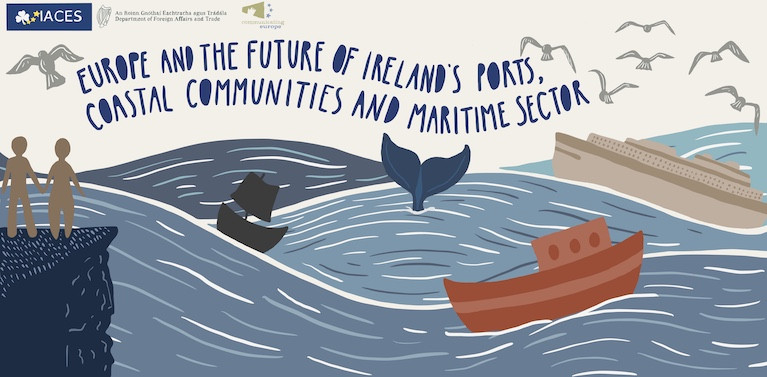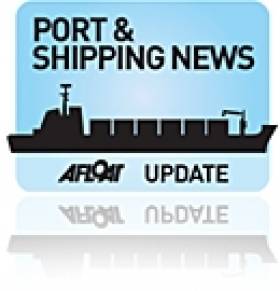Displaying items by tag: Ports & Shippiing News
EU & Ireland's Ports, Coasts & Maritime Sector Conference Announced
During the process of the UK’s withdrawal from the EU, there was, rightly, a great deal of focus in public debate on the issues confronting Ireland’s border communities. On 20 November 2020, the Irish Association for Contemporary European Studies (IACES) will be holding an online conference which aims to expand the terms of this debate, and to examine and deepen understanding of a key issue in Ireland’s relationship with the EU – that of the future of those coastal and port communities which, at the end of the transition period, will find themselves on a new frontier between the EU and the UK.
Bringing together academics, experts and stakeholders, this online conference and workshop aims to explore the key role played by Ireland’s ports, coastal communities and maritime sector in its membership of the EU; provide a forum in which issues confronting Ireland’s port and coastal communities as a result of Brexit, climate change and the coronavirus pandemic can be discussed; and, crucially, highlight how responses to these challenges are framed and influenced by Ireland’s EU membership.
The conference will examine contemporary challenges for Ireland's ports, coasts and maritime sector, explore community projects that cross the maritime border between Ireland and Wales, and examine the long history of Ireland's cultural connections with the sea. Attendance is open to all, and further details and registration are available here.
Shipping Review: Ardmore Newbuild, Work at Foynes, Congested Rotterdam, International Ports AGM Heads to Dublin
#Ports&ShippingReview – Over the last fortnight, Jehan Ashmore has reported on the shipping scene where Ardmore Shipping was delivered a 25,000dwt tanker newbuild, Ardmore Cheyenne from a Japanese shipyard.
Phase one of work continues on a major €50m investment of Foynes Port to transform the Shannon Estuary port into one of the biggest bulk harbours in Europe.
Rotterdam's new Maasvlakte 2 (MV2) container-terminal run by AMPT has been hitting back over claims of a slower than expected rollout of its operations with delays causing current traffic congestion at Europe's biggest container port.
The International Association of Port Cities (AIVP) will host its AGM for 2015 in Dublin next month ahead of the June Bank Holiday weekend. 'Working Waterfront' is the topic of the two-day meeting.
Due to high levels of interest in the inaugural Maritime Industry Awards (18 June) the entry deadline has been extended for companies to submit in the award categories to 23 April.

























































